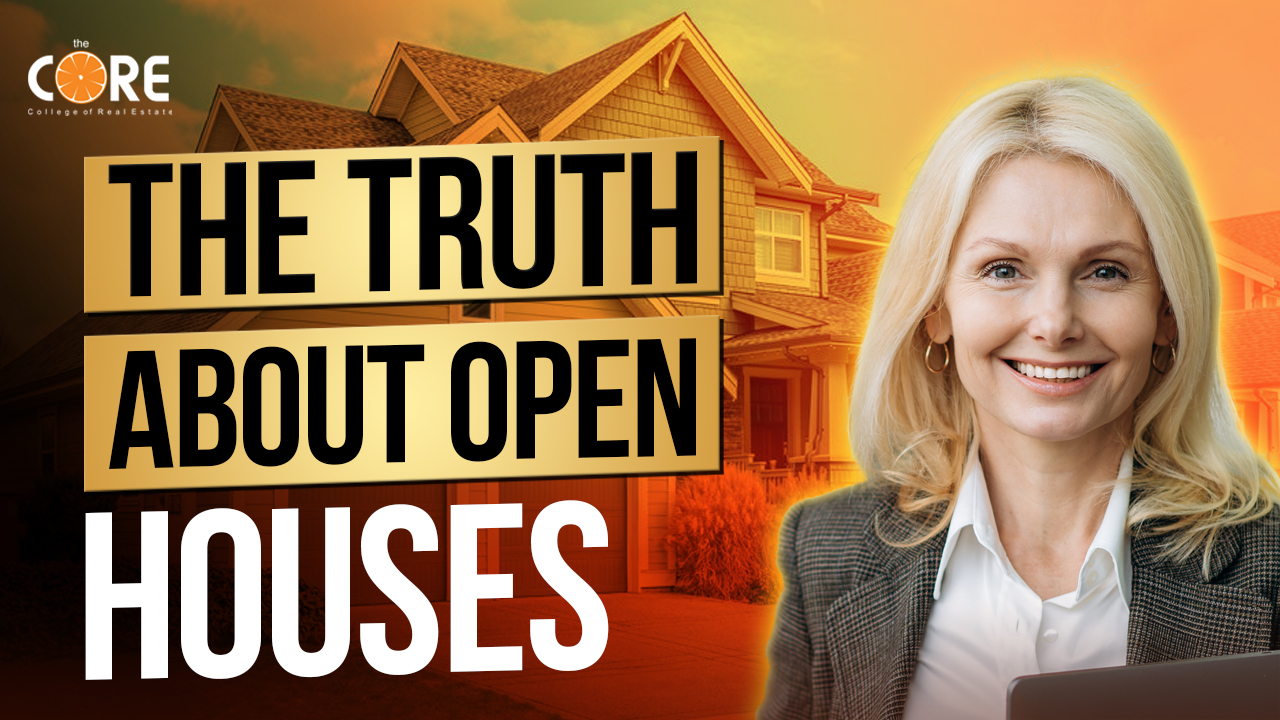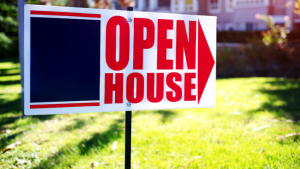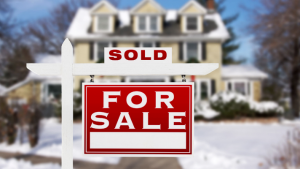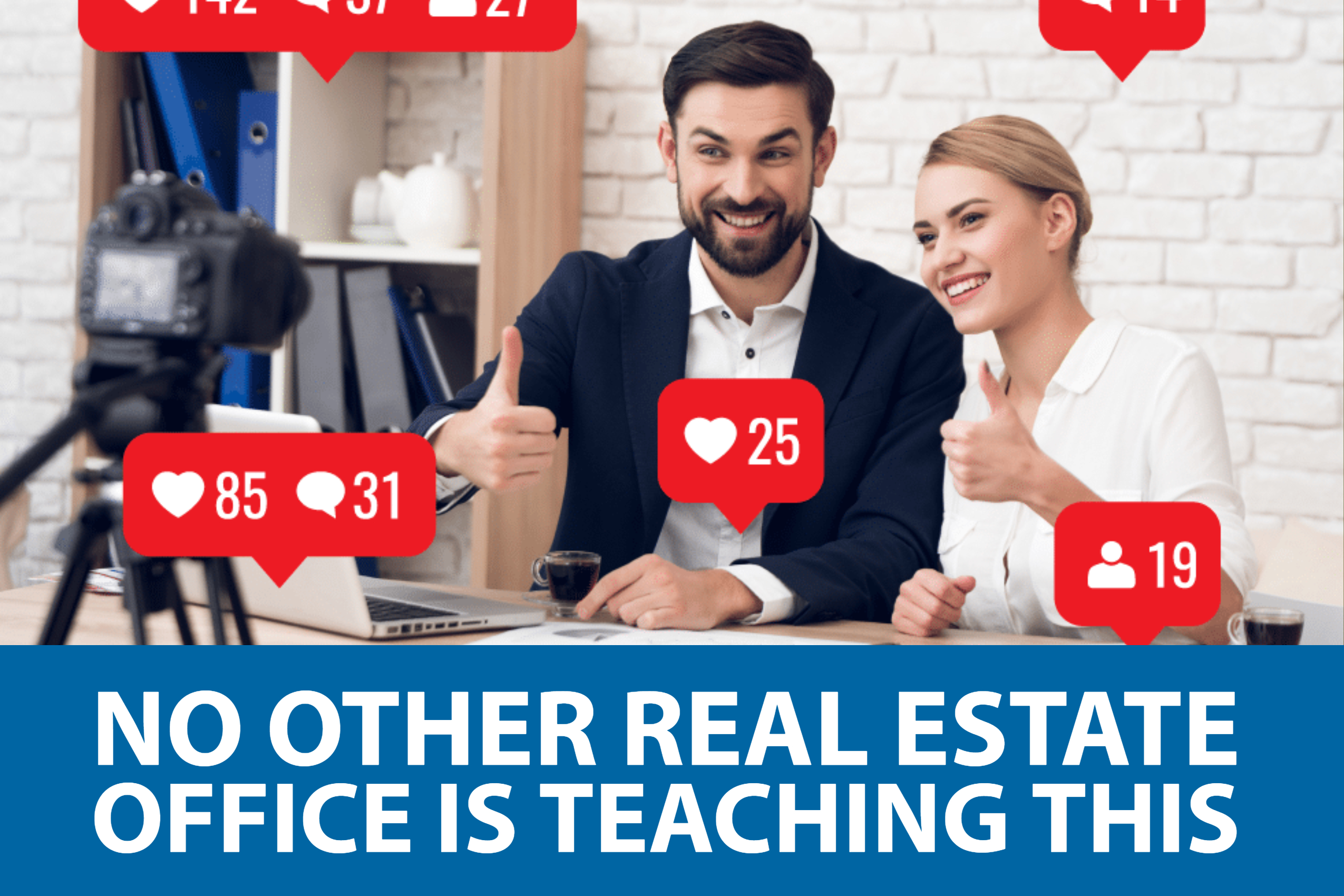The Truth About Open Houses

[mashshare]
Open houses are a great way to see what your home is worth, but do they work? That’s kind of the age-old question. With expert knowledge of real estate agents to home buyers, anyone can find success at an open house. Just about everyone who is selling a home has an open house. It seems to be a given. But is it? What can you really expect from hosting one yourself? Do open houses really do an effective job of selling your home? Springtime happens to be the most popular season for open houses, so let’s take a look at the pros and cons of sharing your home with potential buyers at an open house as well as a few tips to make it a success.
When you host an open house, you want to make sure that you give people enough time to look around and see what’s available in your neighborhood. You might also consider having multiple events during the same weekend if possible so that there will be plenty of people able to attend each event. The biggest benefit of having an open house is that it will expose people who may not have thought about buying or renting a home yet. This can be especially helpful if someone has been looking at homes for some time now but hasn’t found anything they like yet. An open house allows them to see what’s available in the area without having to travel too far away from their current location or make too many inquiries about different neighborhoods before finding something that fits their needs perfectly! So if you want to know more about this, this blog is for you.
For today’s blog, exclusive for our Core members, we will be talking about the truth about open houses.
 Are you ready for a journey through the joys of selling your home? Are you ready to free yourself from the anxiety of having to schedule an open house and make sure that everything goes smoothly? Let’s face it: scheduling an open house can be a proper headache in your busy lifestyle, or ruin your relaxing family Sunday afternoon by preparing your home for sale! An open house is not a key component of a successful sale. The key components are the right real estate agent, the correct price point, and an excellent marketing campaign. So here are the truths about open houses that you may not have considered before.
Are you ready for a journey through the joys of selling your home? Are you ready to free yourself from the anxiety of having to schedule an open house and make sure that everything goes smoothly? Let’s face it: scheduling an open house can be a proper headache in your busy lifestyle, or ruin your relaxing family Sunday afternoon by preparing your home for sale! An open house is not a key component of a successful sale. The key components are the right real estate agent, the correct price point, and an excellent marketing campaign. So here are the truths about open houses that you may not have considered before.
The first one is that you don’t need an open house for a successful sale. While most real estate agents will try to set up an open house, simply from habit, it’s important to ask yourself whether there is even a need for open houses. In the past, real estate sales have been conducted in the same way they have been since before there was a World Wide Web: agents would display properties to potential buyers, who would come out and make offers. This process hasn’t changed much over time; however, advances in technology have revolutionized all areas of industry and commerce—and real estate is no exception. Top real estate agents have adjusted to this new reality and rightfully asked whether there is even a need for open houses.
As the saying goes, “It’s better to look good than to feel good.” If you’re a homeowner looking for your next home, it’s important that you feel good about the process. The internet has changed how buyers search for homes and how homes are sold. Nowadays, prospective buyers hit the internet first when embarking on their home-buying journey. A great online listing should be part of your marketing strategy – far more than an open house! Rather than focusing on sorting out an open house, connect with a competent real estate agent with an expansive network of buyers and sellers. Invest time and effort into developing a solid marketing campaign with them.
 The second truth is that most of those attending the open house are not qualified buyers. The open house mentality is a great way to get people into your home and make a sale. But it’s also a great way for you to get scammed. Some will be “just looking.” Some will be nosy neighbors looking to check out your place, and they’re not going to be prepared for what they’re about to see and highly likely will have no intention of buying. In short, the open house mentality encourages many to pitch up on the day itself, who aren’t prepared for what they’re about to see and highly likely will have no intention of buying. While the agent may have the best interests of their client at heart, they also have to protect themselves. You can’t make money if you’re always on the hook for clients who don’t pay you. So instead of taking a harder line against troublesome clients, an agent will prioritize private viewing appointments with pre-approved buyers who are in a position to make offers. They then use these showings as a guide for what is worth paying more attention to and what isn’t.
The second truth is that most of those attending the open house are not qualified buyers. The open house mentality is a great way to get people into your home and make a sale. But it’s also a great way for you to get scammed. Some will be “just looking.” Some will be nosy neighbors looking to check out your place, and they’re not going to be prepared for what they’re about to see and highly likely will have no intention of buying. In short, the open house mentality encourages many to pitch up on the day itself, who aren’t prepared for what they’re about to see and highly likely will have no intention of buying. While the agent may have the best interests of their client at heart, they also have to protect themselves. You can’t make money if you’re always on the hook for clients who don’t pay you. So instead of taking a harder line against troublesome clients, an agent will prioritize private viewing appointments with pre-approved buyers who are in a position to make offers. They then use these showings as a guide for what is worth paying more attention to and what isn’t.
The next one is that you can expect those inquisitive community members to pop in. Have you ever been to an open house? It’s a great opportunity for real estate agents and homeowners to show off their homes, connect with new clients, and share their best tips for achieving a home-buying dream. But what if I told you that an open house isn’t always about finding new clients? The myth is that every open house leads to a long queue of genuine, interested, potential customers. Wouldn’t that be great?! The reality is that an open house is an opportunity for window shoppers to come off the street to have a look.
They might be interested in buying your house, but they’re not ready yet—and they might not even be looking at houses yet! So while they’re there, they’ll probably leave without making any offers or showing any interest in yours. If you’re selling your house, you’ve probably considered how to handle the open house. After all, it’s an opportunity for nosy neighbors to check out your home and get a feel for how it compares to theirs.
 But there’s a better way: don’t run another open house! Instead, consider getting your real estate agent in on the action. They’ll know how much information you want them to share with potential buyers and how much they can safely share without giving away too many trade secrets that could hurt your sale price. If you’re worried about nosy neighbors but don’t want to give up the chance for some extra marketing exposure, try running an interactive online tour of your home instead—it’s a great way to show off what makes your space special without giving away any secrets (and it can also help with SEO!).
But there’s a better way: don’t run another open house! Instead, consider getting your real estate agent in on the action. They’ll know how much information you want them to share with potential buyers and how much they can safely share without giving away too many trade secrets that could hurt your sale price. If you’re worried about nosy neighbors but don’t want to give up the chance for some extra marketing exposure, try running an interactive online tour of your home instead—it’s a great way to show off what makes your space special without giving away any secrets (and it can also help with SEO!).
The fourth truth is that open houses have a poor conversion rate. In general, when you run an open house, you are inviting the world in to see your house. This can include a small percentage of potential buyers. However, in most cases, you are also inviting in a crop of people not interested in buying your home. If you’ve ever been to an open house, this is probably pretty obvious—there’s probably a lot of noise and activity going on in your home, and maybe even some salespeople showing off their stuff too. But if you’re just looking at it from the outside?
You might not notice all the “noise” until after you’ve already left. Every open house is not a win. Open houses are a great opportunity to show your home to potential buyers, but they can also be a pain in the ass if you’re not careful. You’re probably thinking, “Wait—I’m an open-house lover! I love showing my home to people. It’s what I do!” And yes, it is! But the fact that you love showing your home means you’re not going to get very far in the process of selling it.
 The truth is that open houses are more trouble than they’re worth for sellers—but they’re also much less trouble for agents. That’s because agents have more important things to do than sit around and wait on real estate clients who aren’t ready or willing to buy right now. Your agent should spend their time and energy trying to attract buyers who will be ready for the next stage of the process: closing on the property and moving forward with negotiations with the seller.
The truth is that open houses are more trouble than they’re worth for sellers—but they’re also much less trouble for agents. That’s because agents have more important things to do than sit around and wait on real estate clients who aren’t ready or willing to buy right now. Your agent should spend their time and energy trying to attract buyers who will be ready for the next stage of the process: closing on the property and moving forward with negotiations with the seller.
The next truth about open houses is that they are not good for your peace of mind. We don’t have to spend time unpacking current crime statistics to drive the point. It’s not a surprise that criminals attend open houses and scrutinize the homes of potential victims. But what’s harder to understand is why they would do so. Why would someone who is trying to steal from you rather than buy your house? Unfortunately, there are many reasons why criminals might attend a show house or other open house: The first is that they are just curious about what type of person owns a particular home.
They might be looking for a place to rob, but they also might be looking for some sort of weakness in their target’s security system. They might even want to scout out the neighborhood before committing any crime—and if there are open houses going on in the neighborhood, then it will be easier for them to do so. The second reason why criminals attend open houses is that they know it will be easy for them to find easy targets at such events. Criminals tend not to go where there are lots of people around—they’re safer when there aren’t many witnesses around! Is it worth the risk, when you consider what valuables and heirlooms you have on your property?
 The last truth is that you don’t have to agree to run an open house. There are a few reasons why an agent may push you into holding an open house. For one, it looks like they are doing good work when they take up their (and your) whole Sunday for an open house! It also may feel like the agent is trying to make sure you have no choice but to get a contract on that home—which is not true at all. Agents can only make suggestions, and then it’s up to you. Another reason some agents still endorse open houses is that they want more information about what kind of house you’re looking for and how much money you plan on spending. In other words, they want to use the open house as an opportunity to talk directly with you about how much they think their agency is worth. But rather than judging an agent by how busy they look (or don’t look), base it on the results, they get: how long does it usually take for them to sell a house? Do they usually sell houses close to the sellers’ asking prices? Do they have good references?
The last truth is that you don’t have to agree to run an open house. There are a few reasons why an agent may push you into holding an open house. For one, it looks like they are doing good work when they take up their (and your) whole Sunday for an open house! It also may feel like the agent is trying to make sure you have no choice but to get a contract on that home—which is not true at all. Agents can only make suggestions, and then it’s up to you. Another reason some agents still endorse open houses is that they want more information about what kind of house you’re looking for and how much money you plan on spending. In other words, they want to use the open house as an opportunity to talk directly with you about how much they think their agency is worth. But rather than judging an agent by how busy they look (or don’t look), base it on the results, they get: how long does it usually take for them to sell a house? Do they usually sell houses close to the sellers’ asking prices? Do they have good references?
Your agent is your best resource when it comes to the purchase of a home. The more time you spend with them, the more likely they are to be able to answer your questions and help you find what you’re looking for. A good agent will be open to a discussion about whether or not to hold an open house. While it might still be advantageous to hold them in certain rare situations (such as new construction), bearing in mind the pointers in this article, listen to what your agent has to say and make your own informed decision.
That’s it for this blog CORE Member. What do you think of the tips we’ve shared? Let us know in the comments below. And don’t forget to subscribe to our channel, click the notification bell, and like this blog. If you think that we have delivered value please share this blog with one person. Just one share is enough for us, for you to show your appreciation for the commitment and hard work we all put together in creating this blog that teaches and helps you on your mission of building your own fortune. And you don’t know that one share could go a long way. And keep in mind that no matter how many times you’re going to read this blog, you won’t see any results unless you take action. Goodbye and see you at the next one!
[mashshare]





